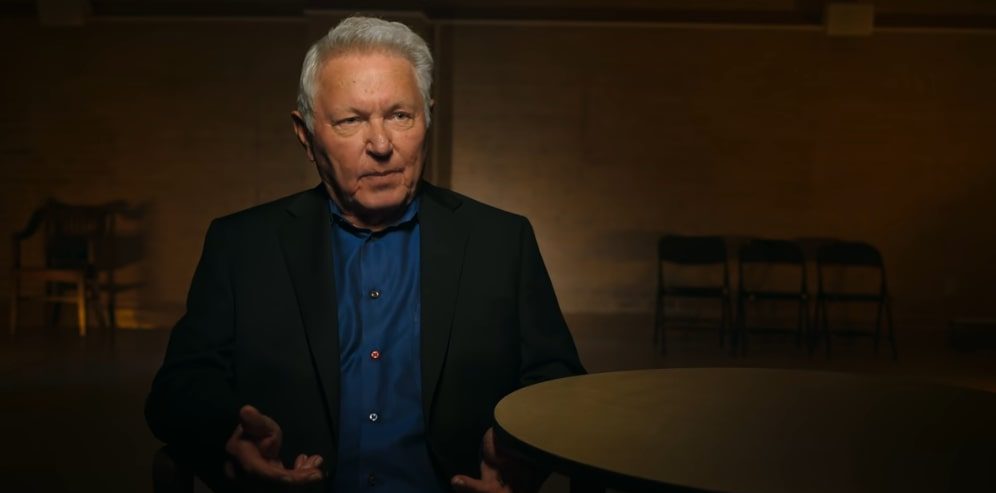Bob Ricks served as the Federal Bureau of Investigation’s Special Agent in Charge of its Oklahoma City field office during the April 19, 1995, bombing. It made him a pivotal figure in the immediate response and subsequent investigation. He was on the ground within hours of the blast, coordinating with local, state, and federal partners to secure the scene and initiate what became one of the most exhaustive domestic terrorism investigations in US history. His efforts not only led to the rapid identification and arrest of Timothy McVeigh but also reshaped FBI protocols for handling large-scale attacks. He reflected on these events and his role in Netflix’s documentary ‘Oklahoma City Bombing: American Terror.’
Bob Ricks Took on a Central Role in the Response to the Oklahoma City Bombing in 1995
Robert “Bob” A. Ricks was born on October 14, 1944, in Houston, Texas, and spent his early childhood in Del Rio. From a young age, he showed great promise, and those around him had little doubt he was destined for success. He earned a degree in Business Administration from Baylor University in 1967, followed by a Juris Doctor from Baylor Law School in 1969. While there, he stood out as editor of the Baylor Law Review and a member of Phi Delta Phi. That same year, he began his distinguished career as a Special Agent with the FBI, quickly proving his exceptional capability and leadership.

Ricks recalled that on the morning of April 19, 1995, he and several other law enforcement officials were out playing golf when all their phones rang. Instantly sensing something serious, they rushed to the Alfred P. Murrah Federal Building, where chaos had unfolded. As the Special Agent in Charge of the FBI’s Oklahoma City field office, Ricks immediately sprang into action. He mobilized FBI personnel to the blast site and oversaw the rapid setup of a makeshift field office, complete with communications and coordination centers. He ensured that evidence collection and victim rescues could proceed without delay.
Under Ricks’ direction, the investigation, codenamed OKBOMB, conducted more than 28,000 interviews, followed some 43,000 leads, and amassed over three tons of evidence. He guided the intelligence analysis that connected the attack to Timothy McVeigh. Ricks was able to bring valuable insight from his previous experience handling the Waco Siege, a 1993 standoff between federal agents and the Branch Davidians religious sect in Texas that ended in tragedy. He had been the Special Agent in Charge during that time as well. His knowledge of extremist groups and high-stakes negotiations proved crucial during the Oklahoma City bombing investigation.
Bob Ricks’ Legacy as a Former Federal Agent is Marked by Significant Contributions
Bob Ricks had a long and distinguished career in public service, marked by leadership, resilience, and a deep commitment to safety and justice. During his time with the FBI in Oklahoma, he not only served as the Special Agent in Charge but also took on the role of Chairman of the Oklahoma Federal Executive Board and later served as Chief Counsel for the DEA for three years. In 1995, following his instrumental role in the Oklahoma City bombing investigation, Ricks retired from the FBI and was appointed by Governor Frank Keating as Oklahoma’s first Secretary of Safety and Security.

He was also named Commissioner of Public Safety, overseeing multiple law enforcement and emergency response agencies. His expertise and steady hand earned him the trust of Governor Brad Henry, who retained him in his cabinet, where he served until 2003. That same year, he began a new chapter as Chief of Police in Edmond, Oklahoma—a role he held with honor until his retirement in 2017. He is still widely respected for his leadership, integrity, and dedication to public service at both the state and federal levels.
Bob Ricks Participates in His Community Through Leadership Roles Today
Bob Ricks has often reflected on the high-stakes encounters he faced during his career, especially the Oklahoma City bombing and the Waco siege, the two defining moments in American law enforcement history. He has shared firsthand accounts of these events in several notable true crime television series and documentaries, including ‘Unsolved Mysteries,’ ‘Waco Untold: The British Stories,’ ‘Days That Shaped America,’ and ‘An American Bombing: The Road to April 19th.’ In February 2025, he also did an interview for a YouTube channel named This Is Oklahoma. His detailed recollections offer a rare insight into the FBI’s tactical responses and the emotional toll of such crises.

Since retiring from active duty, Ricks has remained an influential figure in law enforcement circles and his local community. He serves on the council for CLEET (Council on Law Enforcement Education and Training), which sets training standards and certifies law enforcement officers in Oklahoma. He is also a Life Member of the International Association of Chiefs of Police (IACP) and contributes to their Homeland Security Committee, where he helps shape policy on national safety. Additionally, he previously chaired the Metro Area Chiefs’ Association, which fosters collaboration among law enforcement heads in metropolitan areas. Bob Ricks is also a proud member of the Ronald Reagan Alumni Association, which honors those who served during the Reagan Administration and continues to inspire with his sharp mind.
Bob Ricks is Grateful For the Blissful Time He Enjoys With His Family
Bob and Janis Ricks have built a warm, close‑knit family over more than three decades of marriage in the heart of Oklahoma. Their two children, Shawndi White Ricks and Bob A. Ricks, grew up surrounded by their parents’ dedication to community service and tradition, values they now carry forward. Today, Bob and Janis delight in hosting weekend gatherings for their children and five grandchildren and are very content with what they have. Surrounded by family, friends, and the vast Oklahoma skies, Bob continues to embody the hospitality and spirit that have defined his remarkable life.
Read More: Amy Downs: Where is the Oklahoma City Bombing Survivor Now?


